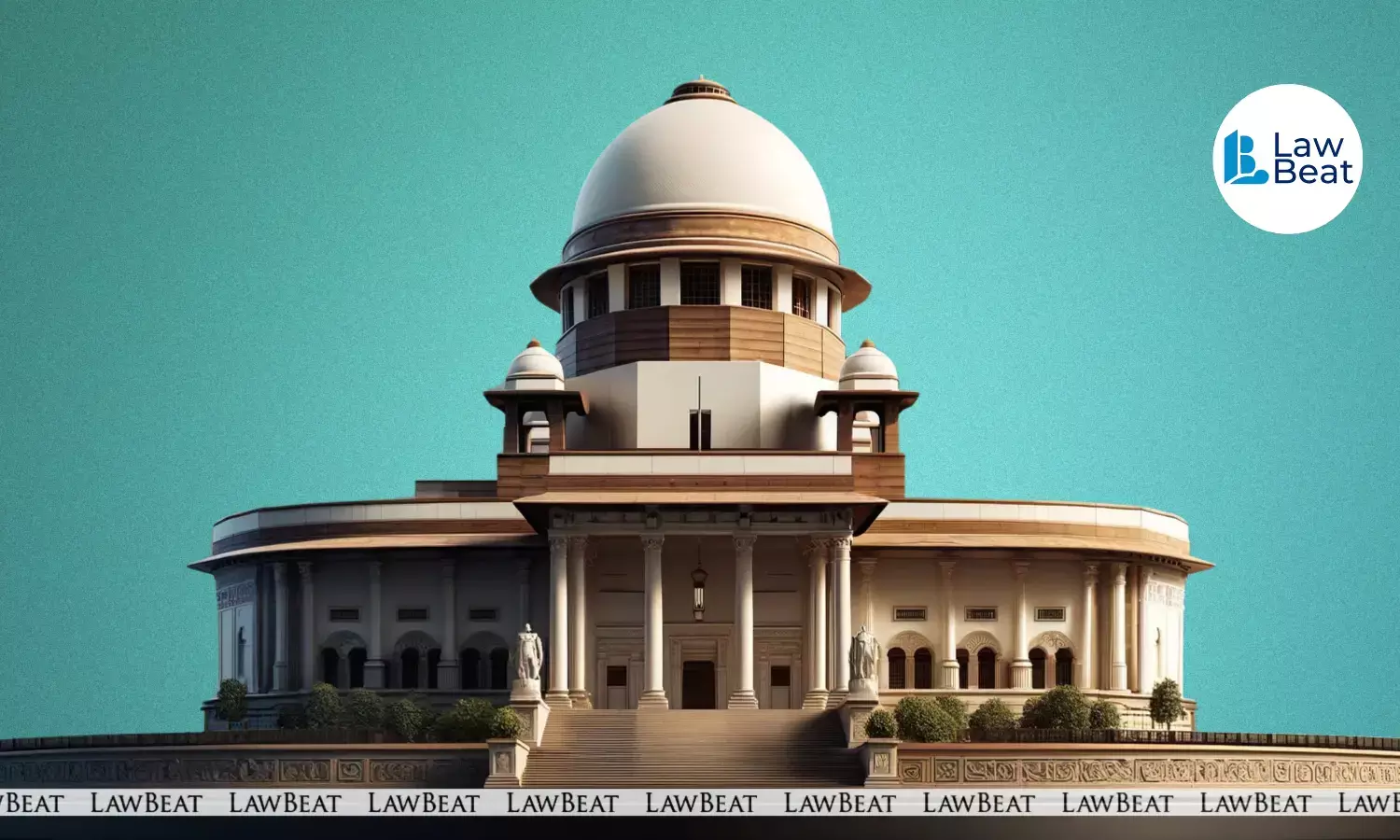Speaking Order Mandatory to Justify Tax Demand or Penalty Under CGST: Supreme Court

The Supreme Court has said every show cause notice under the Central Goods and Services Tax Act, 2017, must culminate in a final, reasoned order, as failure to issue a speaking order creates a legal vacuum and any consequential action, including penalty, would then be potentially violating Article 265 of the Constitution, which prohibited the levy or collection of tax except by authority of law.
A bench of Justices J B Pardiwala and R Mahadevan allowed an appeal filed by M/s ASP Traders against the Allahabad High Court's order of July 18, 2022, rejecting a writ petition by the appellant, a registered dealer in Red Arecanut operating from Channagiri, Davangere, Karnataka.
After detaining of the consignment and notice, the appellant, in view of pressing business exigencies, deposited Rs 7,20,440 towards IGST, as indicated in the show cause notice, resulting in release of goods. However, no final order under Section 129(3) was passed by the Mobile Squad. After the appellant's repeated representations for a reasoned order under section 129(3) were not acceded to, it approached the High Court, which passed the impugned order.
The apex court examined the legal issue whether, upon payment of tax and penalty by the assessee within the time stipulated in the notice under section 129(3) of the Central Goods and Services Tax Act, 2017, the proper officer is still mandatorily required to pass a final order under the provision, or whether the deeming fiction under section 129(5) dispenses with such requirement.
The bench pointed out that while Section 129(5) provides that proceedings shall be deemed to be concluded upon payment of tax and penalty, this deeming fiction cannot be interpreted to imply that the assessee has agreed to waive or abandon the right to challenge the levy.
"A right that is protected by the very enactment itself. The term “conclusion” as used in Section 129(5) merely signifies that no further proceedings for prosecution will be initiated. It does not absolve the responsibility of the proper officer to pass an order concluding the proceedings. Therefore, the proper officer is duty-bound to pass a formal order in Form GST MOV-09 and upload a summary thereof in Form GST DRT 07 as mandated under Rule 142(5) and the Circular dated 13.04.2018, so as to enable the taxpayer to avail the appeal remedy as per law,'' the bench said.
Court also held that once objections are filed, adjudication is not optional; it becomes imperative to pass a speaking order to justify the demand of tax and penalty, to safeguard the right of appeal under Section 107.
"The language of section 129(3) is categorical in stating that the officer 'shall issue a notice… and thereafter, pass an order'. The use of the words 'and thereafter' reinforces the mandatory nature of passing a reasoned order, regardless of payment, particularly where protest or dispute is raised,'' the bench added.
Court held that the right to appeal under Section 107 of the CGST Act, 2017, is predicated on the existence of a formal adjudication order, and its absence renders the right illusory.
"When objections are filed or payment is made under protest or compulsion, adjudication is indispensable, and the proper officer is duty-bound to pass a speaking order under Section 129(3),'' the bench said.
Court also said the absence of a mechanism in the GST payment portal to indicate payment under protest cannot operate to the detriment of the assessee's rights, especially when objections were already on record.
Court also distinguished between terms 'waiver' and 'acquiescence'. It noted, a waiver is an abandonment of a right by express terms or by implication. This is an act by which a party elects to abandon his right to pursue a particular remedy with full knowledge of its existence, making the other party to alter his position or legal status.
Acquiescence, on the other hand, will imply the conduct of a party, who refrains from taking any action for a long period of time, despite the knowledge of the violation of his right, thereby precluding his future right to agitate the issue, as it would be hit by laches, it added.
The bench held that there must be much more than an abandonment of a right to plead waiver or acquiescence.
In the case, the High Court dismissed the appellant's writ petition seeking a final order under Section 129(3) of the CGST Act, 2017. The appellant's consignment of red arecanut was detained, and despite depositing of the demanded tax and penalty due to "business exigencies", no formal adjudication order was passed by the tax authorities.
The appellant sought a reasoned order to enable it to exercise its statutory right of appeal, which was denied by the High Court, holding that the proceedings were deemed to have concluded under Section 129(5) of the Act.
In its order, the Supreme Court set aside the High Court's order and mandated the tax authorities to pass a reasoned final order.
Court directed the AC (Mobile Squad) -2, Jhansi to pass a reasoned final order under Section 129(3) of the CGST Act, 2017, in Form GST MOV-09, after affording an opportunity of being heard as mandated under Section 129(4).
This order, along with its summary in Form GST DRC-07, must be uploaded within a period of one month, the bench ordered.
Court granted the appellant liberty to pursue appropriate legal remedies against such order in accordance with law.
Case Title: ASP Traders Vs State of Uttar Pradesh & Ors
Judgment Date: July 24, 2025
Bench: Justices J B Pardiwala and R Mahadevan
